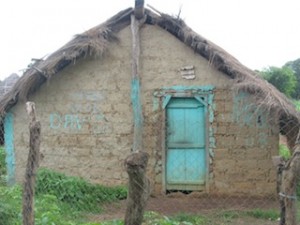By Conor Godfrey
Any Westerner visiting the West African bush will most likely report that two things surprised them the most—the number of people with cell phones, and the number of video clubs.
Villages that boast narry a pump or health clinic will often have a video club.
The video clubs are simple affairs.
Some entrepreneurial soul scratched up enough money for a generator, small television, and a supply of horrible American action movies poorly dubbed into French.
(Thus propagating the belief that while people are all martial arts experts)

There is a huge market for local stories tackling indigenous themes across the continent.
The African film scholar Mbye Cham observed that “…cinema by Africans has grown steadily over this short period of time to become a significant part of a worldwide film movement aimed at constructing and promoting an alternative popular cinema, one that is more in harmony with the realities, the experiences, the priorities and desires of the society which it addresses.”
The presence and popularity of these local films in my tiny Guinean village is indicative of a continental trend.
Digital technology now allows film-makers and musicians to avoid the costly hurdles of professional production.
Nigeria’s Nollywood puts out more films every year then Hollywood or Bollywood using these low cost techniques.
The Africans who manage to find financial backing for a major production often do well on the film festival scene for one or two years before their movie tumbles into irrelevance.
While digital technology makes production affordable, it tends to produce low quality films with stilted acting.
Most Nollywood films tell hackneyed rags to riches story pivoting on a supernatural object or being.
They remind me of the plot repetitions in American soap operas or reality T.V. spin offs.
I think this is just the beginning.
As Lucy Gebre-Egziabher says in her article on the effect of digital technology on African film, “…we must acknowledge and learn from the achievements of these new directors. They have demonstrated that producing African films, in general, is a viable business and have elicited healthy investment from Africa’s conservative business sector”.
The strength of this market will inevitably improve production quality.
Amateur producers who tackle relevant local themes in new and creative ways will be rewarded by more sales and more investment, while producers who fail to improve will plateau.
For those who live in the New York area and have never seen African film written and directed by Africans—take an afternoon between April 7th and 13th to see the world through African eyes.
One thought on “African Film-making in Flux”